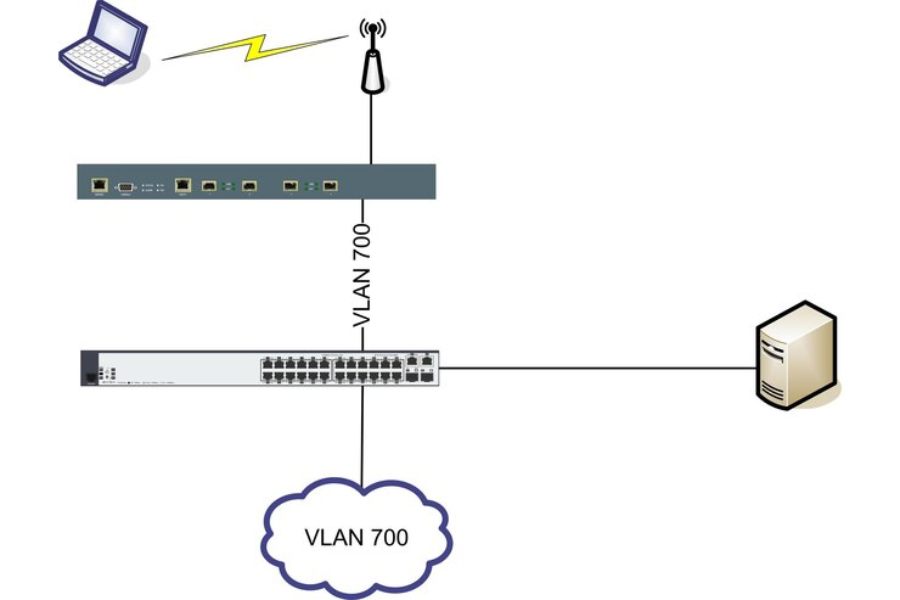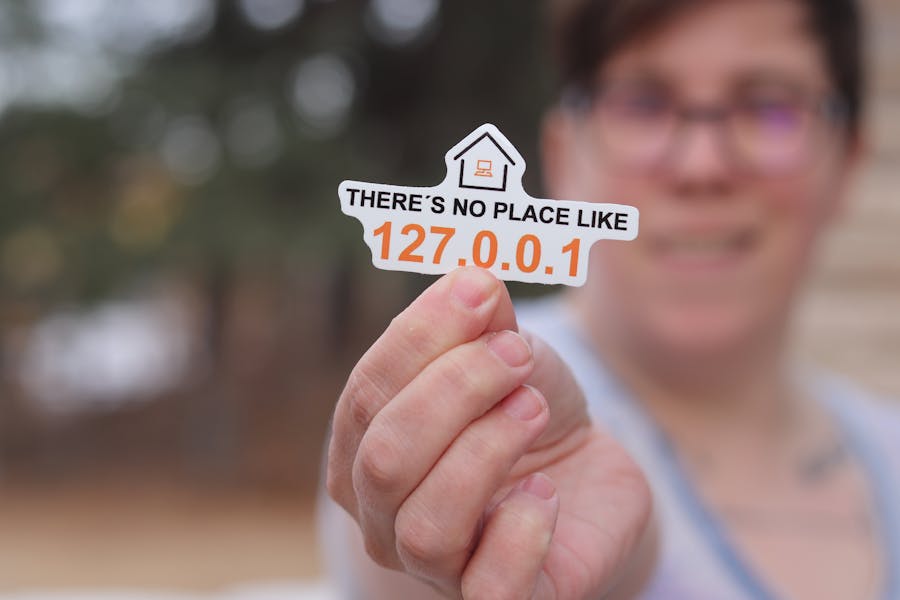
In the age of digital connectivity, every device connected to the internet is assigned a unique identifier—an IP address. This seemingly simple number holds a wealth of information, from geolocation data to potential insights into a user’s digital activity.
But can you search IP addresses? If you’ve ever been curious about tracing someone’s online footprint, identifying sources of spam, or even verifying the location of website visitors, this question has likely crossed your mind.
Searching IP addresses is more common than people realize. Whether it’s a website admin checking analytics, a business tracking security threats, or an individual verifying suspicious activity, there are numerous reasons someone might want to look up an IP.
From how to look up an IP address to what you can discover with it, we’ll unpack everything you need to know. This comprehensive guide will cover why people search IPs, how it’s done, what the results mean, and when it’s appropriate or legally acceptable to do so.
Can you search ip addresses?
Yes, you can search IP addresses using online tools like WHOIS, IP lookup services, and network command-line utilities. These tools reveal geolocation, host details, and sometimes the ISP. However, full user identification often requires legal authorization.
The Importance of IP Addresses and Their Role Online
IP addresses serve as the digital address for every internet-connected device. They are critical in identifying where data is coming from and where it should go. There are two main types: IPv4 and IPv6. IPv4 is most common, using a numeric format like 192.168.1.1, while IPv6 supports a much larger address space.
These attributes are invaluable in cybersecurity, analytics, and even online marketing. For example, knowing the location of your site visitors can help tailor content or detect suspicious logins from unexpected regions.
Yet, it’s crucial to note that IP addresses do not provide personally identifiable information (PII) on their own. While some might think an IP lookup can give someone’s name or home address, this is typically false unless combined with other data and obtained through legal channels.
Network administrators often use IP tracking to monitor performance, detect unauthorized access, or troubleshoot errors. Law enforcement agencies also rely on IP address tracing in cybercrime investigations, though they must obtain court orders to force ISPs to release subscriber information.
In sum, IP addresses are fundamental to internet infrastructure and offer useful—but limited—information. Whether for business intelligence or cybersecurity, understanding and responsibly using IP data is a modern digital skill.
Effective Methods for Tracing IP Addresses
IP address lookups help uncover location, ISP, and domain information tied to internet activity. With the right tools, anyone can trace basic IP data quickly and legally.
What Tools Are Used to Search IP Addresses?
Numerous tools allow for basic IP address searches. WHOIS services, IP lookup websites (like iplocation.net or whatismyipaddress.com), and even command-line utilities such as “tracert” or “nslookup” serve this purpose.
What Information Do You Get from an IP Lookup?
These tools typically provide the following data:
- Country, state, and city
- Hostname and ISP
- Latitude and longitude (approximate)
- Time zone
How Accurate Is IP Address Geolocation?
IP geolocation is typically accurate within 25 to 50 miles. However, due to VPNs, mobile IPs, or dynamic IPs, accuracy can vary significantly.
Can You Track a Person from Their IP Address?
Not directly. You can learn about their ISP and region, but not their name, exact address, or device, unless you’re law enforcement with a subpoena.
Why IP Address Searches Are Common and Valuable
IP address lookups serve a wide range of purposes in today’s connected world. Individuals, businesses, and government agencies all rely on IP data to enhance security, optimize performance, and enforce digital responsibility. Below are some of the most common and legitimate reasons to search IP addresses:
- Cybersecurity Monitoring
Organizations use IP address tracking to identify suspicious behavior, prevent unauthorized access, and mitigate potential hacking attempts. It plays a key role in threat detection and response strategies. - Marketing and Audience Analytics
Marketers analyze IP data to understand the geographical origin of web traffic, tailor content to specific regions, and enhance campaign targeting. - Parental Supervision
Parents may use IP tracking tools to monitor their children’s internet activity or apply restrictions on devices within the home network to ensure safe browsing. - Technical IT Support
IT departments often rely on IP lookups to troubleshoot connectivity problems, identify IP conflicts, and manage internal network operations efficiently. - Spam and Abuse Prevention
Email service providers and website administrators use IP searches to identify and blacklist spammy or malicious IP addresses to protect users. - Law Enforcement Investigations
Government agencies track IP addresses to trace illegal online activity. While personal data is protected, legal permissions can unlock more detailed insights.
These examples highlight how IP address searches have become essential tools across various fields.
The Legal Boundaries of IP Address Searches
The legality of searching IP addresses largely hinges on your intent and the methods used. In most countries, using publicly available tools to perform a basic IP lookup, such as identifying the ISP, general location, or hosting provider, is entirely legal. These searches are commonly used for cybersecurity, analytics, and network diagnostics.
However, issues arise when searches go beyond what is publicly accessible. Attempting to trace or monitor someone’s online activity without consent, especially using invasive or unauthorized methods, crosses legal lines. In the United States, detailed subscriber information associated with an IP address is protected. Only internet service providers and law enforcement agencies can legally access this level of data, and even they require a court order.
In the European Union, the General Data Protection Regulation (GDPR) goes further by classifying IP addresses as personal data. This classification means that businesses and individuals must handle IP data with caution, ensuring compliance with strict privacy and data handling laws.
Ethically, it’s also important to consider how IP information is used. Activities such as stalking, harassment, or discrimination using IP data can result in serious legal consequences. Additionally, businesses are expected to disclose any IP tracking practices clearly in their privacy policies. In summary, searching IP addresses is legal, provided it’s done responsibly and within the framework of privacy regulations.
Most Useful Tools and Platforms for IP Address Lookups
IP address lookup tools, which range from simple websites to advanced network utilities, help users identify the origin, location, and service provider of any public IP.
Free Tools for Quick IP Address Lookups
Several free resources are available online that allow users to perform basic IP address lookups. Websites such as ipinfo.io, whatismyipaddress.com, ipgeolocation.io, and ipapi.co provide quick insights into an IP’s location, ISP, and hostname. These tools are user-friendly and commonly used by both technical and non-technical users to gather public information about IP addresses.
Advanced Tracking with Premium Services
Premium IP tracking services offer detailed analytics and extended databases for those requiring more advanced data. Platforms like MaxMind GeoIP2, IP2Location, and db-ip.com deliver robust geolocation data, including organization-level targeting, timezone analysis, and connection type identification. Businesses often use these tools for fraud detection, targeted advertising, and compliance monitoring.
Built-in Command Line Utilities
Operating systems also come equipped with command-line tools that assist in IP tracking. Utilities such as ping, tracert (on Windows), traceroute (on Linux/macOS), nslookup, and dig provide insights into IP routing, DNS resolution, and connectivity paths. These tools are invaluable for system administrators and IT professionals in diagnosing network issues.
Browser-Based Extensions and Developer Tools
Extensions like IP Address & Domain Info for Chrome for browser-based investigations offer quick lookup capabilities. Additionally, developers can use the built-in network inspection features in Chrome DevTools to view IP-related data during site diagnostics. Together, these tools make searching IP addresses accessible and efficient for users of all levels.
Conclusion
In summary, searching IP addresses offers valuable insights into location, ISP, and domain data, all of which can support cybersecurity, analytics, and IT management. While public tools make it easy to access non-personal information, tracing private user identities requires legal authorization. It’s crucial to approach IP lookups ethically, respecting privacy laws and using the data responsibly. When used correctly, IP address searches can enhance digital transparency and security without overstepping boundaries. As the internet continues to evolve, understanding how and when to use IP search tools remains an essential skill in today’s data-driven environment.
FAQ’s
What information can I get from searching an IP address?
An IP lookup can reveal the device’s approximate geographic location, the internet service provider (ISP), hostname, and sometimes the associated domain. It does not include names, email addresses, or street-level details.
Are there free tools available to search IP addresses?
Yes, many free services, such as ipinfo.io, iplocation.net, and whatismyipaddress.com offer accessible IP lookup tools that provide useful data like region, ISP, and time zone information.
Can law enforcement track a person using their IP address?
Yes, law enforcement can track individuals through IP addresses, but only with a warrant or subpoena. During criminal or cyber investigations, they work directly with ISPs to obtain subscriber details.
Can you find the owner of a website by searching its IP address?
Yes, by using WHOIS lookup or DNS tools, you can often discover the domain registrant, hosting company, and technical contact information linked to a website’s IP address.
Is it ethical to search someone’s IP address without their knowledge?
Searching public IP data for general info is acceptable, but using it to track, harass, or collect private details without consent is unethical and may lead to legal consequences if abused.






